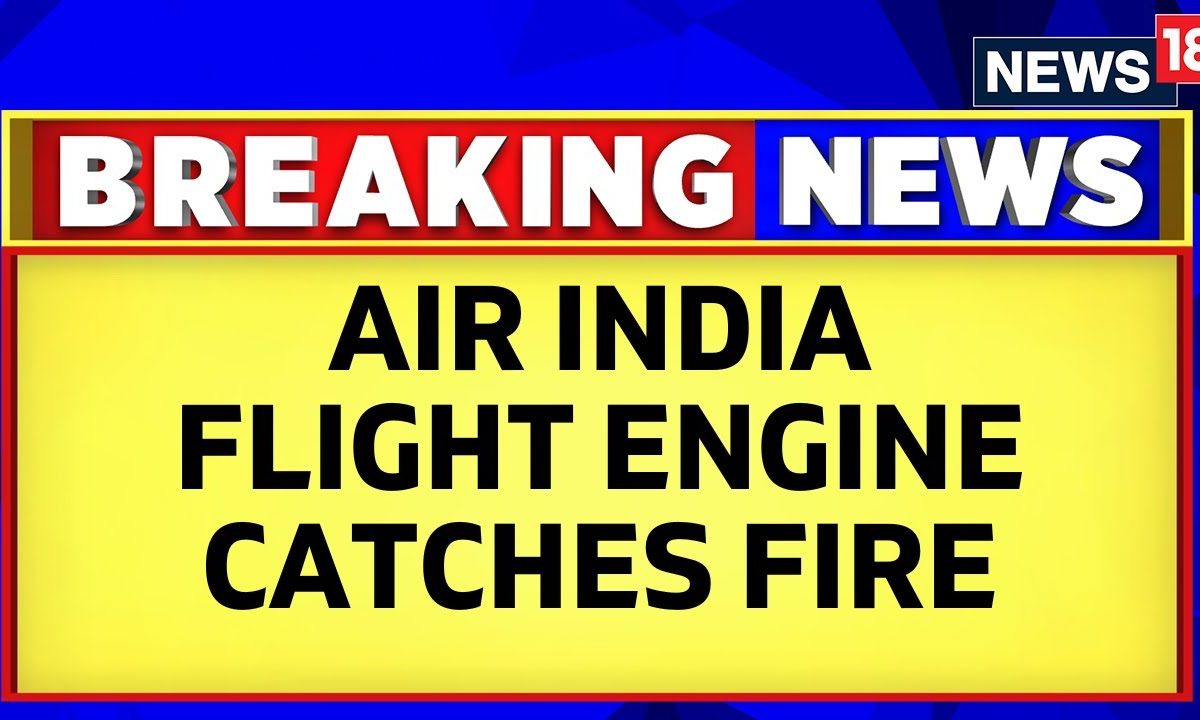Air Canada Flight Engine Fire: Unraveling The Incident And Safety Measures
An alarming incident involving Air Canada flight engine fire has captured global attention, raising concerns about aviation safety and emergency protocols. On a recent flight, passengers were shaken as an engine fire occurred mid-air, prompting an emergency landing. This harrowing event has triggered a wave of questions about the causes, safety measures, and how such incidents are handled by airlines. As the aviation industry continues to evolve, understanding the nuances of engine fires and the protocols in place is crucial for ensuring passenger safety.
The Air Canada flight engine fire incident has sparked discussions about the reliability of aircraft engines and the importance of regular maintenance checks. Passengers aboard the flight described a sudden commotion as the crew announced the emergency and prepared for a safe landing. While the situation was undoubtedly stressful, the professionalism of the crew and the swift response from ground staff ensured a successful resolution. This event serves as a reminder of the critical role that training and preparedness play in aviation safety.
As investigations into the Air Canada flight engine fire continue, experts are examining potential causes, including mechanical failures, human error, and external factors. The incident has also prompted airlines to revisit their safety protocols and emergency response strategies. For travelers, staying informed about such incidents and understanding the measures in place can help alleviate concerns and foster trust in air travel. In this article, we delve deeper into the details of the incident and explore the broader implications for aviation safety.
Read also:Dana Perinos Journey Unveiling The Truth About Her Husbands Illness
What Caused the Air Canada Flight Engine Fire?
One of the primary questions on everyone's mind is: what caused the Air Canada flight engine fire? Investigations are currently underway to determine the exact cause, but preliminary reports suggest that a mechanical failure may have played a significant role. Aircraft engines are complex systems with numerous components, and even minor malfunctions can lead to catastrophic outcomes if not addressed promptly. Experts are analyzing data from the flight's black box and conducting thorough inspections of the aircraft to identify the root cause.
How Do Air Canada's Safety Protocols Handle Engine Fires?
When an air Canada flight engine fire occurs, the airline's safety protocols are put to the test. Pilots and crew members undergo rigorous training to handle such emergencies, ensuring that passengers remain safe until the aircraft lands. In this case, the crew followed standard procedures by declaring an emergency, diverting the flight to the nearest airport, and coordinating with ground staff for a safe landing. The efficiency of these protocols is a testament to the airline's commitment to passenger safety.
Is an Air Canada Flight Engine Fire Common?
Many travelers are wondering: is an Air Canada flight engine fire a common occurrence? Fortunately, engine fires are relatively rare in modern aviation due to advancements in technology and stringent safety standards. However, when they do occur, they highlight the importance of continuous monitoring and maintenance. Airlines like Air Canada invest heavily in maintaining their fleet to minimize the risk of such incidents. Understanding the frequency and causes of engine fires can help passengers make informed decisions about their travel plans.
What Steps Are Taken After an Air Canada Flight Engine Fire?
In the aftermath of an Air Canada flight engine fire, several steps are taken to ensure the safety of passengers and crew. The aircraft is thoroughly inspected to identify any damage or potential hazards. Additionally, the airline conducts a comprehensive review of its safety protocols to identify areas for improvement. Passengers involved in the incident may receive support services, including counseling and assistance with travel arrangements. These measures demonstrate the airline's dedication to addressing concerns and maintaining trust with its customers.
Can Passengers Trust Air Canada After an Engine Fire?
Following the Air Canada flight engine fire, some passengers may question whether they can still trust the airline. It's important to note that incidents like these are rare and that Air Canada has a strong track record of safety and reliability. The airline's swift response to the situation and commitment to transparency further reinforce its reputation. Passengers are encouraged to review the airline's safety records and stay informed about any updates related to the incident.
What Should Passengers Do During an Air Canada Flight Engine Fire?
In the unlikely event of an air Canada flight engine fire, passengers should remain calm and follow the instructions provided by the crew. Listening carefully to announcements and adhering to safety protocols can significantly increase the chances of a successful outcome. It's also advisable to familiarize yourself with the aircraft's safety features and emergency procedures before takeoff. By staying informed and prepared, passengers can contribute to a safer travel experience.
Read also:Who Is Mark Ruttes Partner A Comprehensive Look Into Their Relationship
Table of Contents
- What Caused the Air Canada Flight Engine Fire?
- How Do Air Canada's Safety Protocols Handle Engine Fires?
- Is an Air Canada Flight Engine Fire Common?
- What Steps Are Taken After an Air Canada Flight Engine Fire?
- Can Passengers Trust Air Canada After an Engine Fire?
- Understanding the Importance of Regular Maintenance
- Advancements in Aircraft Safety Technology
- How Air Canada Ensures Passenger Safety
- What Lessons Can Be Learned From the Incident?
- Conclusion: Moving Forward in Aviation Safety
Understanding the Importance of Regular Maintenance
Regular maintenance is a critical component of aviation safety, playing a key role in preventing incidents like the Air Canada flight engine fire. Airlines adhere to strict schedules for inspecting and servicing their aircraft to ensure optimal performance. This includes checking engine components, fuel systems, and other critical areas. By prioritizing maintenance, airlines can significantly reduce the risk of mechanical failures and enhance overall safety.
Advancements in Aircraft Safety Technology
Technological advancements have greatly improved aircraft safety, reducing the likelihood of incidents such as an air Canada flight engine fire. Modern aircraft are equipped with sophisticated monitoring systems that detect potential issues before they escalate. Additionally, advancements in materials and engineering have made aircraft more resilient and reliable. As technology continues to evolve, the aviation industry is poised to achieve even higher levels of safety.
How Air Canada Ensures Passenger Safety?
Air Canada is committed to ensuring passenger safety through a combination of rigorous training, regular maintenance, and advanced technology. The airline invests in state-of-the-art equipment and provides ongoing education for its employees to stay ahead of emerging challenges. By fostering a culture of safety and accountability, Air Canada continues to earn the trust of its passengers and maintain its reputation as a leader in the aviation industry.
What Lessons Can Be Learned From the Incident?
The Air Canada flight engine fire incident offers valuable lessons for the aviation industry and travelers alike. It underscores the importance of continuous improvement in safety protocols, regular maintenance, and effective communication during emergencies. Airlines can use this event as an opportunity to enhance their training programs and invest in cutting-edge technology. For passengers, staying informed and prepared can contribute to a safer and more enjoyable travel experience.
Conclusion: Moving Forward in Aviation Safety
While the Air Canada flight engine fire was undoubtedly a concerning event, it also serves as a reminder of the aviation industry's commitment to safety and innovation. By learning from incidents like these and implementing proactive measures, airlines can continue to provide reliable and secure travel options for millions of passengers worldwide. As we move forward, the focus must remain on enhancing safety protocols, leveraging technology, and fostering trust between airlines and their customers.
Article Recommendations


